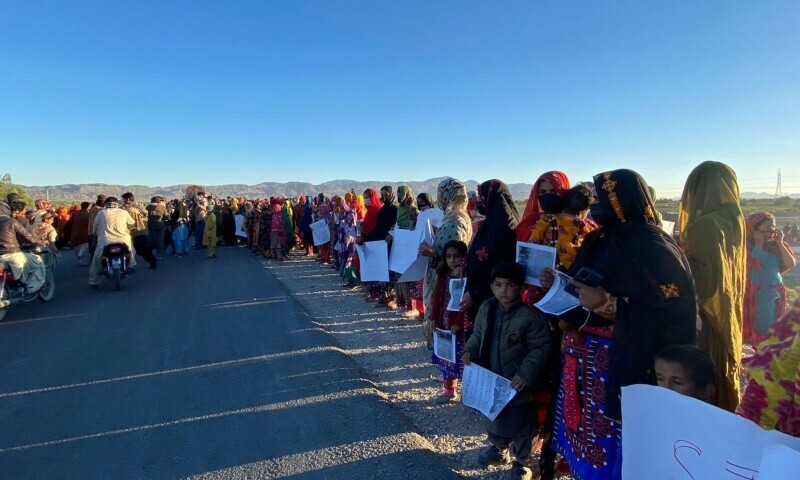The family of Karim Baloch, who was allegedly killed by personnel of a government-backed “Death Squad”, has staged a sit-in protest with his body in Turbat city of Balochistan’s Kech district.
According to reports, the grieving family, accompanied by Baloch activists, transported Karim’s body from Tump—where he was reportedly killed—to the M-8 Highway at D-Baloch Cross in Turbat to stage a sit-in protest demanding justice.
The family stated that they had initially traveled from Tump to Turbat seeking justice, as two of their young children had previously been martyred by the assailants. However, they claim that no action has been taken to apprehend the killers.
Appealing to the residents of Turbat, the family urged the public to join their protest and demand accountability for the targeted killings of Baloch youth. They emphasized that widespread support is crucial to ending such violence.
Extrajudicial Killings and Death Squads in Balochistan
Balochistan has long been plagued reportedly by enforced disappearances, extrajudicial killings, and a campaign of systematic repression against those advocating for greater autonomy or independence. Human rights organizations, including Amnesty International and Human Rights Watch, have documented numerous cases of forced abductions, disappearances, and killings of Baloch activists, intellectuals, and students by both state security forces and affiliated militias.
One of the most controversial aspects of this repression is the reported existence of government-backed Death Squads. These militias, allegedly supported by Pakistan’s security agencies, are accused of targeting Baloch political activists, journalists, and intellectuals. The primary aim of these squads, according to Baloch nationalist groups and rights organizations, is to counter the ongoing Baloch independence movement, which has been active for decades.
The rise of these militias is reportedly linked to a broader state policy aimed at crushing dissent in Balochistan. Analysts argue that these groups operate with impunity, often targeting those critical of the government or those suspected of having ties to nationalist groups. Many victims of enforced disappearances later turn up dead with signs of torture, while others remain missing for years with no accountability.
Human Rights Organizations and Baloch Nationalists’ Stand
Human rights groups have repeatedly called for international intervention and independent investigations into the activities of these “Death Squads”. Amnesty International, in several reports, has urged Pakistani authorities to end enforced disappearances and prosecute those responsible for extrajudicial killings. The United Nations has also raised concerns over the deteriorating human rights situation in Balochistan.
Baloch nationalist leaders and activists claim that the systematic targeting of youth like Karim Baloch is part of a broader strategy to instill fear among the people and suppress aspirations for self-determination. They argue that unless there is international pressure and accountability, such killings will continue unchecked.

